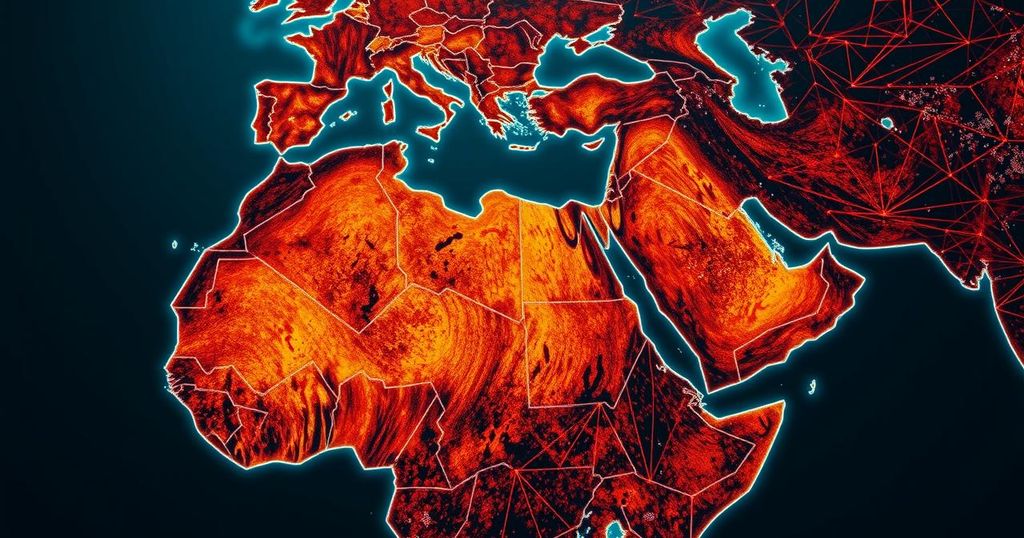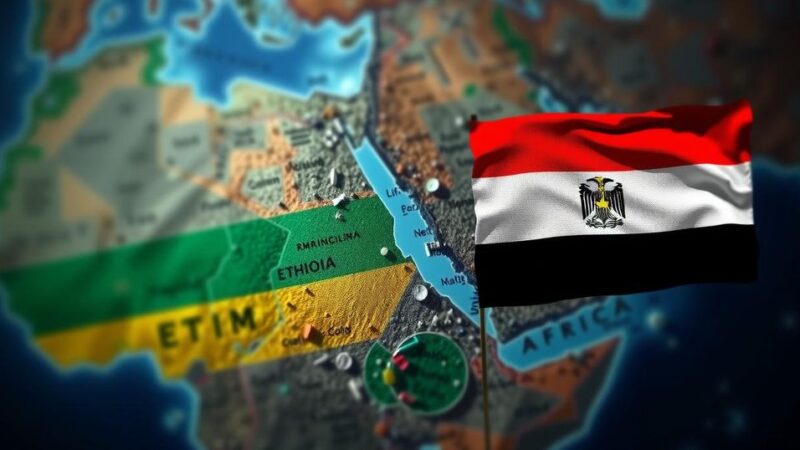In October 2023, Egypt, Eritrea, and Somalia convened a summit in Asmara, pledging military support for Somalia and responding to Ethiopia’s expanding influence, particularly regarding the controversial GERD and regional agreements. Egypt has been enhancing military alliances with its neighbors to strengthen its position and compel Ethiopia to negotiate water management terms over the Nile.
In early October, a trilateral summit was convened in Asmara, where the presidents of Egypt, Eritrea, and Somalia committed to enhancing military collaboration, particularly in support of Somalia’s counterterrorism endeavors. This summit was interpreted as Egypt’s strategic maneuvering in response to Ethiopia’s expanding influence in the region, notably following Ethiopia’s controversial memorandum with Somaliland regarding the establishment of a military presence in exchange for recognition of Somaliland’s independence. Egypt’s long-standing diplomatic rift with Ethiopia primarily revolves around the Grand Ethiopian Renaissance Dam (GERD), which Egypt perceives as a significant threat to its national security and water supply. Furthermore, the recent activation of the Entebbe Agreement, an accord regarding Nile River water management, has raised additional concerns for Egypt and Sudan, viewing it as jeopardizing their water security. Underlining Egypt’s intent to reaffirm its standing among African allies, Professor Iman Abdel Azim of Cairo University’s Institute of African Studies remarked on the country’s increasing focus on military cooperation with neighboring nations since 2019. Key developments include a military defense agreement between Egypt and Somalia and Egyptian arms shipments to Somalia soon after. Additionally, a mutual defense pact with Eritrea was established, showcasing Egypt’s heightened military involvement in the Horn of Africa. Amani El-Tawil, Director of the African Program at Al-Ahram Centre for Political and Strategic Studies, noted that Egypt’s alliances are no longer confined to traditional diplomatic interactions; they now encompass more robust military and security partnerships aimed explicitly at countering Ethiopia’s influence. Moreover, the construction of the GERD, which has considerably impacted Egypt’s water allocations, has triggered a range of domestic response measures, including wastewater treatment projects and restrictions on water-intensive agriculture. Water resources expert Abbas Sharaky highlighted the dire implications of the dam for Egypt’s water supply, asserting that every cubic meter held back by the dam directly affects Egypt’s resources. In light of stumbling diplomatic efforts over the Nile’s waters, former Assistant Foreign Minister Mona Omar emphasized that Egypt is at a critical juncture, having exhausted diplomatic avenues with Ethiopia to secure a cooperative agreement for water management. She drew attention to Ethiopia’s recent support for regional separatist ambitions, particularly regarding Somaliland, which has catalyzed closer relations between Egypt and other nations in the region such as Eritrea. Amid this backdrop, Egypt’s re-engagement strategy aims to create a coalition that can compel Ethiopia to resume negotiations concerning the GERD and the Entebbe Agreement. This evolving dynamic has prompted observers to view the strengthening ties between Egypt and its allies as both a countermeasure to Ethiopian expansionism and a means of securing Egypt’s own interests and security in the Horn of Africa.
The geopolitical landscape of the Horn of Africa has become increasingly complex due to rising tensions primarily centered around water security and regional influence, particularly involving Egypt and Ethiopia. The Grand Ethiopian Renaissance Dam (GERD), a significant water resource project, has led to escalating disputes over Nile water management, a lifeline for Egypt. Despite numerous rounds of negotiation regarding equitable water sharing outlined in the Entebbe Agreement, a consensus has been elusive, pushing Egypt to forge military alliances with neighboring states such as Eritrea and Somalia to bolster its strategic standing in the region.
In conclusion, the recent trilateral summit in Asmara exemplifies Egypt’s proactive approach to consolidate military alliances in the Horn of Africa as a response to Ethiopia’s growing regional dominance and the looming threat posed by the GERD. The evolving political and military dynamics underscore a critical juncture for both nations, with Egypt striving to reclaim its influence and ensure water security while countering perceived Ethiopian expansionism. The immediate future may witness intensified competition and potential conflict as both countries navigate their respective strategic interests.
Original Source: www.newarab.com






